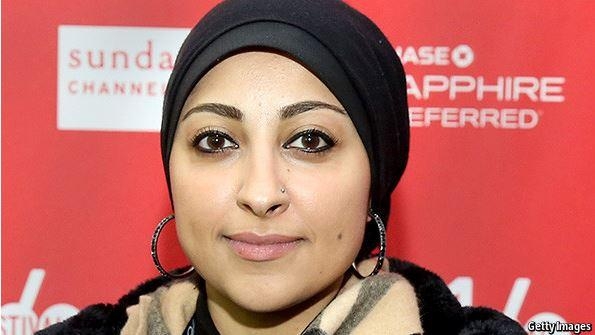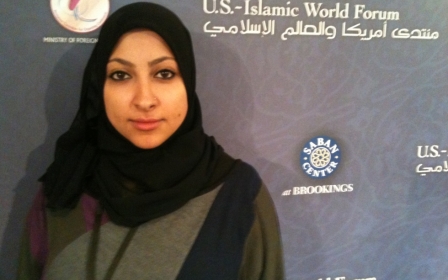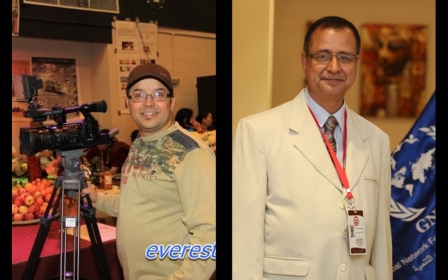Activists warn of wave of citizenship withdrawals in Gulf States

The International Federation for Human Rights (FIDH) on Wednesday released an urgent appeal on behalf of Maryam al-Khawaja, the human rights activist detained in Bahrain since 30 August.
Al-Khawaji was arrested on arrival at Bahrain International Airport, where she touched down on a flight from Denmark to visit her father, a rights activist who is desperately ill on hunger strike in a Bahraini prison.
As well as being charged with “assault and battery” of public employees and “insulting the king”, Khawaja, who holds dual Danish-Bahraini citizenship, was informed that her Bahraini status is being revoked.
Though she holds a valid Bahraini identity card, airport officials alleged that she is not a citizen of Bahrain, though they refused to provide any supporting evidence to back up their claim according to FIDH.
The retraction of citizenship rights from nationals is not just limited to Bahrain, and activists have expressed concern that it is being used as a punitive measure by a number of Gulf States.
The Monitor of Human Rights in Oman warned on 27 August that the sultanate is “paving the way for a wide-ranging and dangerous phase of oppression” with a new law expanding the capacity of authorities to revoke Omani citizenship.
The new law issued on 12 August allows the Interior Ministry to revoke the citizenship of Omani nationals belonging to “a group, party or organisation professing principles and beliefs harmful to Oman.”
The monitor warned that this article could be “easily exploited by the state to sanction, oppress and pursue activists, journalists and broadcasters.
“Any media or press group could comfortably be described as being opposed to the nation’s best interests.”
Nabhan Salim, an exiled Omani activist, echoed these concerns.
“Anyone who tries to speak out against the government in any way will lose their passport, especially activists and journalists.
“Authorities will demand that human rights activists and politicians, anybody in contact with international organisations, stop publishing or lose their citizenship.”
Christopher Davidson, a specialist in Gulf affairs at the UK’s Durham University, agreed that the strategy of revoking citizenship “has been used to punish opponents.”
“The ‘classic’ example is Saudi Arabia’s revoking of Osama Bin Laden’s citizenship in 1994.
“More recently it was resurrected by the UAE in 2011.
“Now all of these states seem to be pursuing the strategy with vigour.”
Authorities in Kuwait arrested the writer and political activist Mohammed Khalid al-Ajmi on 27 August on suspicion of insulting religion.
It is thought that his arrest is linked to a tweet Ajmi published previously in which he criticised a decision to revoke the citizenship of a prominent cleric.
Kuwait withdrew the citizenship of Sheikh Nabil al-Awadi and ten others – the order came three weeks after authorities took the same measure against a number of opposition activists in the country.
An official statement did not provide a reason for the decision, but did assert that the 11 individuals “do not deserve citizenship according to rules and regulations set out by law.”
The move against Awadi, a prominent preacher and presenter of a popular television show on Kuwait’s al-Watan television channel, prompted outrage among citizens in many Arab states, who took to Twitter to express their anger.
Awadi had gained Kuwaiti citizenship in 2007 - before that time he had been one of up to 180,000 stateless nationals living in the country, a group named “Bedoon” after the Arabic word for “without.”
Around a third of people living in Kuwait were not given citizenship when it won independence in 1961, and they and their descendants still live throughout the country.
They are unable to obtain marriage and birth certificates and barred from foreign travel because authorities claim they are nationals of neighbouring states.
With the withdrawal of his citizenship, Awadi has now been returned to this state of paperless limbo.
Middle East Eye propose une couverture et une analyse indépendantes et incomparables du Moyen-Orient, de l’Afrique du Nord et d’autres régions du monde. Pour en savoir plus sur la reprise de ce contenu et les frais qui s’appliquent, veuillez remplir ce formulaire [en anglais]. Pour en savoir plus sur MEE, cliquez ici [en anglais].




